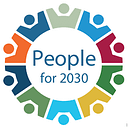Working with governments to help communities confront climate change
Meet Karma Lodey Rapten, a Regional Technical Specialist for UNDP Regional Hub in Bangkok, Thailand, who shares how working with the government in his home country of Bhutan inspired his work with UNDP.

During college, I used to be very active in environmental conservation, joining social groups to support communities through social service work. After my undergraduate degree in sciences, I joined the civil service of my home country of Bhutan. I worked mainly on environmental conservation and sustainable development.
While I was working for the government, I was exposed to many international-level conferences. I used to travel with senior government officials all over the world. I had the opportunity to travel far and wide and meet with people of diverse backgrounds and cultures. Since then I’ve always wanted to pursue a career in an international organization like UNDP.
Besides the opportunity to build a career within my field of expertise, I felt that UNDP would offer immense satisfaction by allowing me to contribute to peace and security, human rights and sustainable human development. Also being in UNDP allows one to work in different countries and to get to know different cultures as part of a challenging, global and diverse workforce with people from all over the world working towards the same goal.
Benefiting communities through green projects
I have now been working for UNDP for 13 years and I still love the work I do. Through our projects, we have the unique opportunity to work directly with governments and communities on the ground. When my efforts, together with those of my colleagues, contribute to the bigger goals of the organization, I feel truly satisfied. Currently, I’m in the regional office, but for most of my career in UNDP, I was based in the Country Offices. I had direct interaction with communities, with the governments. It was really nice being part of the community at large.

I worked in my home country of Bhutan for almost seven years, from 2008 to 2015, as the head of the Energy, Environment and Disaster Management portfolio. In 2015, I moved to UNDP Myanmar. There I was Chief Technical Advisor for a climate change adaptation project in the central dry zone of Myanmar. In June 2019, I was appointed as the head of the UNDP office in Northern Rakhine, where I worked with UNHCR on programme planning, coordination and implementation of quick impact projects to help create conditions conducive to the voluntary, safe and dignified return of displaced persons. I worked there until February last year. And then there was a position announced here in Bangkok for the regional office.
Currently, I’m the Regional Technical Specialist for the Nature, Climate and Energy team under the Bureau for Policy and Programme Support, based in Bangkok. I support countries in the Asia Pacific region mainly on climate change adaptation. I provide technical advice, programming and implementation support and oversight services to UNDP Country Offices. I support about eight countries and about 12 projects related to resilient livelihoods, sustainable development and climate change adaptation.
One of my current projects is a Green Climate Fund supported project in Bangladesh. The objective of this project is to strengthen the adaptive capacity of coastal communities to cope with the impacts of climate-induced salinity on their livelihoods and water security. This project will, by the end of its implementation period, benefit close to more than half a million people in the coastal community of Bangladesh. The key element of this project is empowering target communities, especially women, as change agents to help secure year-round safe drinking water supplies for target communities.

Ripple effects of long-term transformation
It’s not just about providing one-time support to the beneficiaries themselves, it’s also the ripple effects on their children, in the form of better education and career opportunities, because through the resources support that we provide, the beneficiaries are able to earn additional income and send their children to school and give them a better life.
What I really like here is the culture of ethics and integrity where we respect and uphold organizational values and where staff are empowered and motivated to deliver results. So that makes me proud of working at UNDP.
